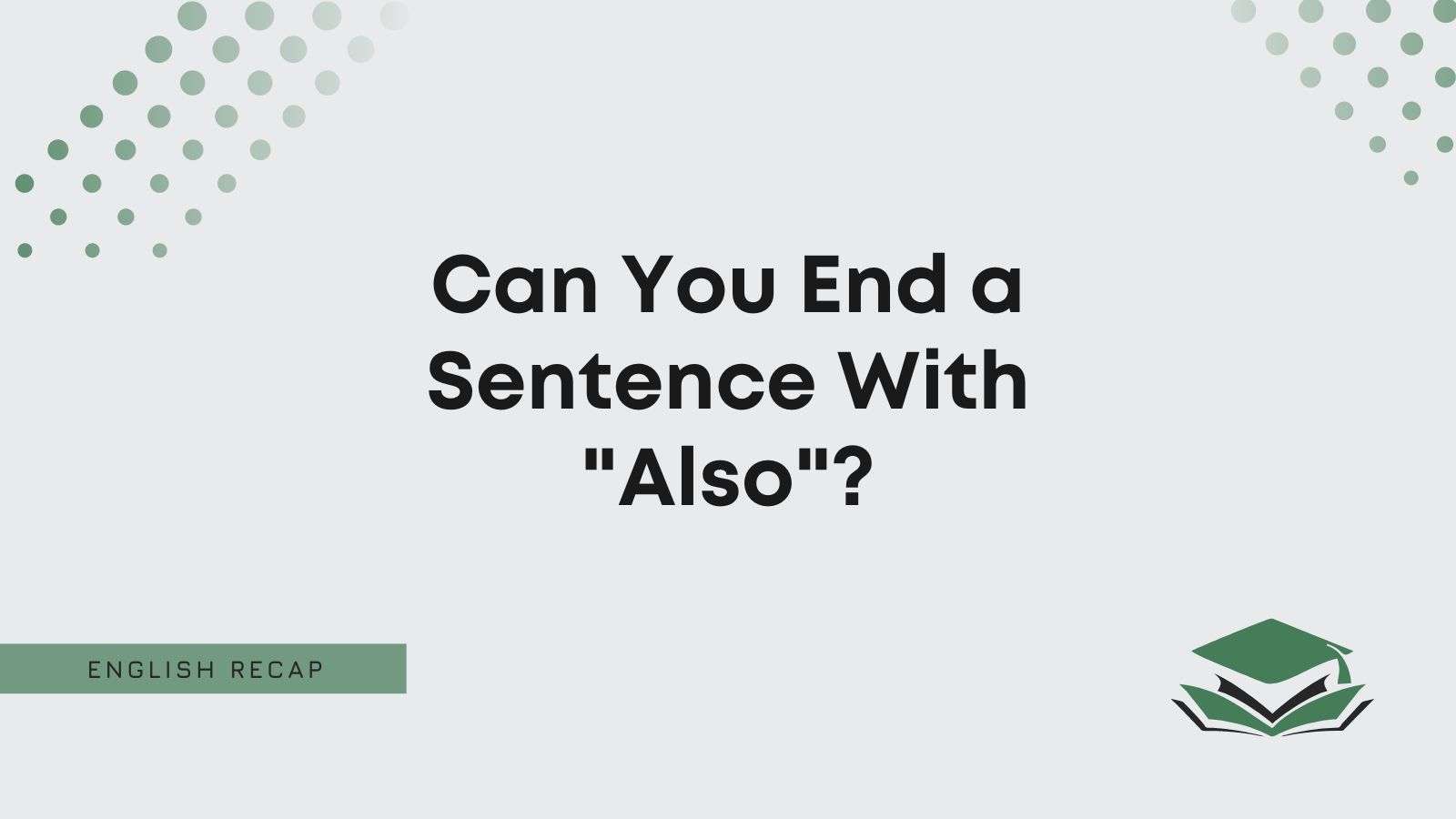You can end sentences with “also” in informal writing when it means the same as the word “too” or “either.” E.g., “I didn’t enjoy staying at that hotel in New York. The food was terrible also.” However, ending sentences with “also” is not common in formal writing.
Ending sentences with “also” is acceptable for informal writing and messaging because this type of writing is not checked. However, it is more common to use the term “also” at the start or in the middle of a sentence.
- We enjoyed the meal. I think the guests enjoyed it also.
You could rephrase the above example as any of the following word orders shown below. These are all more natural and formal than using the “also” at the end of the sentence.
- We enjoyed the meal. I also think the guests enjoyed it.
- We enjoyed the meal. I think the guests also enjoyed it.
- We enjoyed the meal. Also, I think the guests enjoyed it.
In the examples above, the word “also” means the same as the following words:
- Too
- As well
However, in some cases, primarily when you use negative verbs, its meaning is closer to:
- Either
Here’s an example of such a case:
- My wife doesn’t like seafood, and I don’t like it also.
- My wife doesn’t like seafood, and I don’t like it either.
You have seen the basics of ending sentences with “also.” Now, read the rest of the page to find out how to use the right word to finish sentences in formal writing.
Can You End a Sentence With “Also” in Formal Writing?
It is not common to end sentences with “also” in formal writing.
The word itself is not the problem; you commonly find it at the start and middle of formal sentences. However, placing it at the end is not formal and is mainly for informal messaging.
You can use several synonyms instead of “also” at the end of a sentence or to start a new sentence in formal writing. These include:
- As well
- Too
- Either
- In addition
- Furthermore
- Moreover
Below are some examples that show how you can make sentences ending with “also” more formal.
- They designed a new tax policy and a policy on crime also.
- They designed a new tax policy and a policy on crime as well.
- The guidelines were not clear, and they were not complete also.
- The guidelines were not clear, and they were not complete either.
- It is a species in danger of extinction. Its habitat has been destroyed also.
- It is a species in danger of extinction. Furthermore, its habitat has been destroyed.
Can You End a Sentence With “Also” in Informal Writing?
While you can end sentences with “also” in informal writing, it is far more typical to put the “also” somewhere else in the sentence.
There are various places the term “also” can appear, as shown in this example:
- He is a great cook and works as a chef. His brother is good also.
These three sentences show a more typical placement of “also”:
- He is a great cook and works as a chef. Also, his brother is good.
- He is a great cook and works as a chef. His brother is also good.
- He is a great cook and works as a chef. His brother also is good.
Also, instead of using “also” to end a sentence in informal writing, you can use a synonym of “also,” such as:
- Too
- As well

